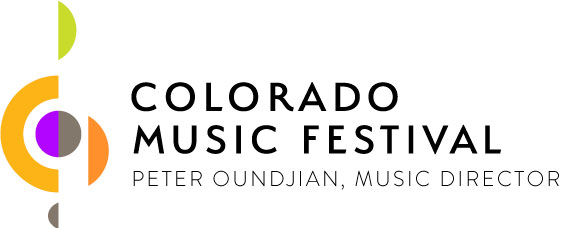Wang Jie, composer
In 2020, the U.S. marks the landmark 100th anniversary of the passage of the 19th Amendment. Over the course of the next several seasons, the Colorado Music Festival celebrates this important centennial through its “Three Generations of Women Composers” initiative, which shines a spotlight on the vibrant world of music generated by female musicians of yesterday, today, and tomorrow.
The key element of this original initiative is a collection of commissioned, world premiere music by eminent female composers. Executive Director Elizabeth McGuire is excited to share details about the first two of these commissions, now planned for the 2021 season, which come from the deeply imaginative composers Wang Jie and Hannah Lash.
Of Wang Jie’s introspective and inspirational composition, McGuire says, “Wang Jie draws upon her own experience as an avid climber, and specifically time spent climbing Colorado’s Eldorado Canyon. In her work, Flying On the Scaly Backs of Our Mountains, she musically evokes what she refers to as her ‘courage’ and combines it with her reverence for the poet Dongpo’s legendary poem about Mount Lu.
“Hannah Lash’s work, Forestallings, is a pure tribute to Beethoven and his 250th Anniversary [in 2020],” continues McGuire. “This work specifically uses themes from Beethoven’s Second Symphony as a point of departure from which the composer ingeniously plays with structure, harmonies and tempos; a modern riff on Beethoven’s own compositional style during that period.”
The “Three Generations of Women Composers” initiative also dedicates space for exciting music by artists such as Gabriella Smith, Caroline Shaw, and Joan Tower.
“For me, the real reason to focus on women (or on any underrepresented population) is that the absence of those ‘voices’ relates to the absence of those unique perspectives reflected in the art itself,” explains McGuire. “Art has to continue to expand and evolve to remain relevant. Music is a powerful force for good in the world, and placing an intentional focus on lifting an underrepresented faction of society is a reminder of that.”
“The good news,” she adds, “is that I think women composers are being recognized. I’m honored to play a part in continuing that trend as well as expanding our focus to celebrate ethnic and cultural diversity.”
An aside from Executive Director, Elizabeth McGuire:
FESTIVAL: You have been involved with classical music for most of your life, including as a musician yourself. What is the biggest way you have seen the role of women change in the orchestra or in administration?
ELIZABETH McGUIRE: I think the “blind” audition practices among major American orchestras has done an excellent job of ensuring the best player is selected for the job. As a former horn player, I am thrilled to see so many women winning major positions.
In January, I attended a national conference and had an opportunity to meet the CEO of a major American nonprofit arts group. […] I’m in my forties with 20+ years in the nonprofit world, yet I had never seen a female leader at such a high level, nor one who embodies a style that reflects my own. It was very empowering!
I’m witnessing a movement towards the acceptance of emotional intelligence, intuition, and authenticity in hiring practices (for administrators). This of course does not eliminate many of my fabulous male colleagues from consideration, but it does reinforce something in me that I have associated with my own femininity and have from time been in environments in which I felt like these qualities were considered weaknesses.
